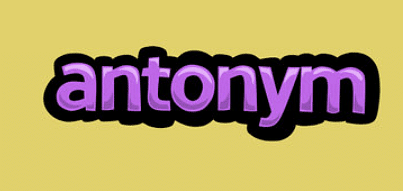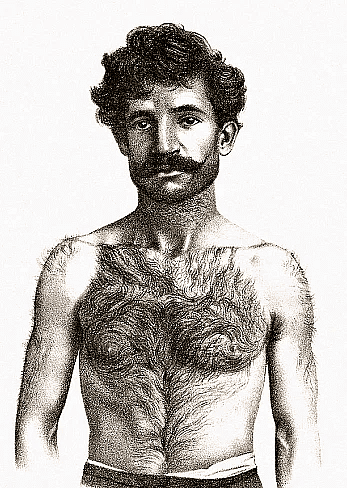Solved Examples: Antonyms | English Language & Comprehension for SSC CGL PDF Download
 Q1: In the below-given questions, choose the word which gives the opposite meaning of the given word.
Q1: In the below-given questions, choose the word which gives the opposite meaning of the given word.
Copious
(a) Sparse
(b) Plenty
(c) Wide
(d) Broad
Ans: (a)
Copious is used to abundant and ample of quantity. Therefore, the only answer giving the opposite meaning is sparse.
Explanation:
(a) Sparse: Correct answer. Sparse means thinly scattered or in short supply, which is the opposite of copious.
(b) Plenty: Means a large quantity, similar to copious, not opposite.
(c) Wide: Refers to physical breadth or extent, not related to abundance or scarcity.
(d) Broad: Refers to width or scope, not related to the amount.
Q2: In the below-given questions, choose the word which gives the opposite meaning of the given word.
Evasive
(a) Frank
(b) Truth
(c) Direct
(d) Honest
Ans: (a)
The word "Evasive" means avoiding giving a clear or direct answer, trying to escape or dodge.
Explanation:
(a) Frank → open, clear, straightforward (opposite)
(b) Truth → noun, not an exact opposite in grammatical sense
(c) Direct → straight, not avoiding (opposite)
(d) Honest → truthful, but not always the opposite of evasive
Q3: In the below-given questions, choose the word which gives the opposite meaning of the given word.
Gregarious
(a) Spare
(b) Group
(c) Antisocial
(d) Friendly
Ans: (c)
Gregarious is a person who is socially affable and likes to be in group. Therefore, the only answer giving the opposite meaning is antisocial.
Explanation:
(a) Spare: Refers to something that is in reserve, not related to social behavior.
(b) Group: Is a synonym, meaning a collection of people, not an opposite.
(c) Antisocial: Correct answer. Antisocial refers to someone who avoids social interaction, the opposite of gregarious.
(d) Friendly: Is similar to gregarious, as both indicate sociability.
Q4: In the below-given questions, choose the word which gives the opposite meaning of the given word.
Hirsute
(a) Bald
(b) Hairy
(c) Fluffy
(d) Dirty
Ans: (a)
Hirsute is a hairy and furry person. Therefore, the only answer giving the opposite meaning is bald.

Explanation:
(a) Bald: Correct answer. Bald means having no hair, the opposite of hirsute.
(b) Hairy: Is a synonym, meaning covered with hair, not an opposite.
(c) Fluffy: Refers to something soft or light, but not related to hair.
(d) Dirty: Means unclean, unrelated to the presence or absence of hair.
Q5: In the below-given questions, choose the word which gives the opposite meaning of the given word.
Cowardly
(a) Arrogant
(b) Brave
(c) Ego
(d) Humble
Ans: (b)
Coward is used for a person who is afraid and timid. Therefore, the only answer giving the opposite meaning is brave.
Explanation:
(a) Arrogant: Refers to having an exaggerated sense of one’s own importance, not related to bravery.
(b) Brave: Correct answer. Brave means showing courage, the opposite of cowardly.
(c) Ego: Refers to one’s sense of self-worth, not related to fear or courage.
(d) Humble: Means modest or not arrogant, which is not directly related to cowardice.
Q6: In the below-given questions, choose the word which gives the opposite meaning of the given word.
Defeated
(a) Victorious
(b) Lost
(c) Misery
(d) Dilemma
Ans: (a)
Defeated means a person who lost a battle or fight. Therefore, the only answer giving the opposite meaning is victorious.
Explanation:
(a) Victorious: Correct answer. Victorious means having won or triumphed, the opposite of defeated.
(b) Lost: Is synonymous with defeated, not opposite.
(c) Misery: Refers to extreme sadness or suffering, which can be a result of defeat but is not the opposite.
(d) Dilemma: Refers to a difficult situation or choice, unrelated to victory or defeat.
Q7: In the below-given questions, choose the word which gives the opposite meaning of the given word.
Modernity
(a) Ethics
(b) Innovation
(c) Contemporary
(d) Traditionalism
Ans: (d)
Modernity shows contemporary and modern culture. Therefore, the only answer giving the opposite meaning is traditionalism.
Explanation:
(a) Ethics: Refers to moral principles, not directly related to time periods or culture.
(b) Innovation: Refers to introducing new ideas or methods, which is aligned with modernity.
(c) Contemporary: Is synonymous with modern, meaning occurring in the present, not an opposite.
(d) Traditionalism: Correct answer. Traditionalism refers to adherence to old customs and practices, the opposite of modernity.
Q8: In the below-given questions, choose the word which gives the opposite meaning of the given word.
Irrational
(a) Absurd
(b) Fact
(c) Logical
(d) Decision
Ans: (C)
Irrational is used for an absurd decision or out of the context. Therefore, the only answer giving the opposite meaning is logical.
Explanation:
(a) Absurd: Means illogical or unreasonable, which is similar to irrational, not opposite.
(b) Fact: Refers to something known to be true but is not the opposite of irrational.
(c) Logical: Correct answer. Logical means based on clear, sound reasoning, the opposite of irrational.
(d) Decision: Refers to a choice made, which could be rational or irrational, and is not an opposite term.
Q9: In the below-given questions, choose the word which gives the opposite meaning of the given word.
Insistent
(a) Perfect
(b) Resolute
(c) Pleading
(d) Clamant
Ans: (c)
Insistent is used for being firm and persistent. Therefore, the only answer giving the opposite meaning is pleading.
Explanation:
(a) Perfect: Refers to something without flaws, not related to persistence.
(b) Resolute: Means firm in purpose or belief, similar to insistent.
(c) Pleading: Correct answer. Pleading means asking earnestly, often with desperation, which contrasts with being firm and persistent.
(d) Clamant: Means making a loud or insistent demand, similar to insistent, not opposite.
Q10: In the below-given questions, choose the word which gives the opposite meaning of the given word.
Obscure
(a) Clear
(b) Pessimist
(c) Vague
(d) Ambiguity
Ans: (a)
Obscure is a doubtful and unclear situation. Therefore, the only answer giving the opposite meaning is clear.
Explanation:
(a) Clear: Correct answer. Clear means easy to perceive or understand, the opposite of obscure.
(b) Pessimist: Refers to someone who expects the worst, which is unrelated to clarity.
(c) Vague: Is synonymous with obscure, meaning unclear or poorly defined.
(d) Ambiguity: Refers to the quality of being open to more than one interpretation, which aligns with obscurity.
|
137 videos|209 docs|152 tests
|
FAQs on Solved Examples: Antonyms - English Language & Comprehension for SSC CGL
| 1. What are some common examples of antonyms? |  |
| 2. How do you identify antonyms in a sentence? |  |
| 3. Are antonyms always formed by adding prefixes? |  |
| 4. Can one word have multiple antonyms? |  |
| 5. How can learning antonyms improve my vocabulary? |  |





















